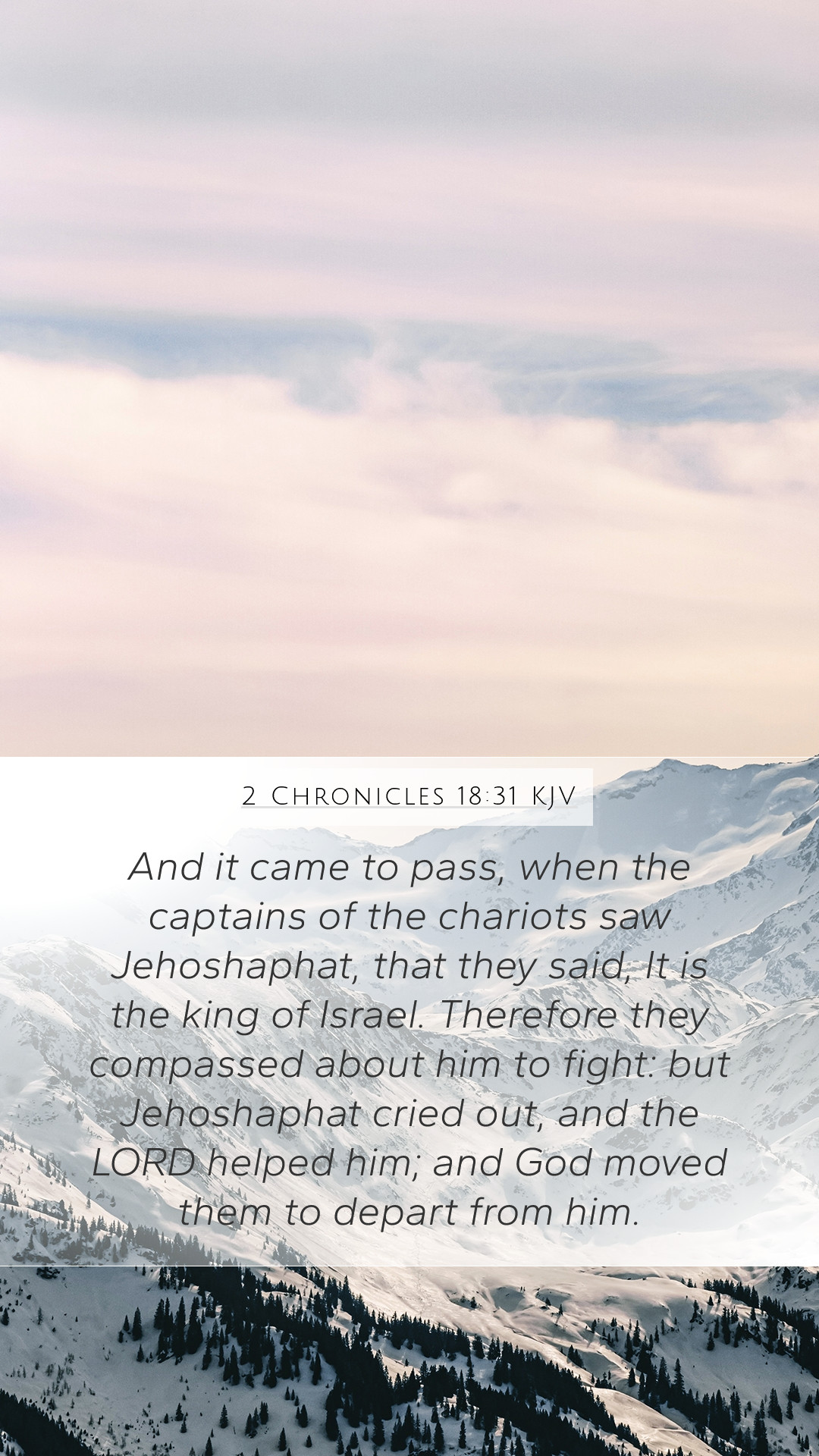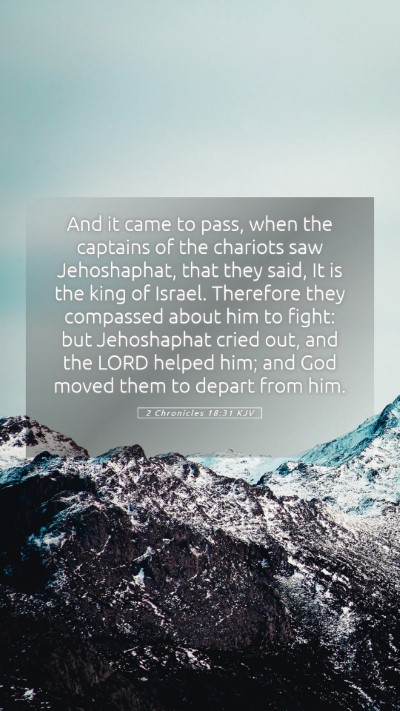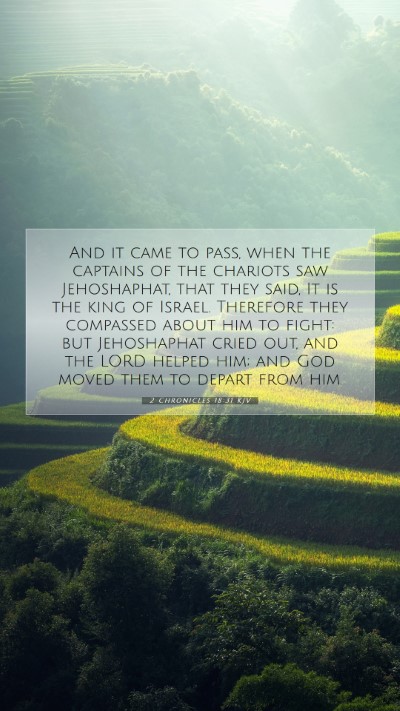Bible Verse Meaning: 2 Chronicles 18:31
Understanding the Context: In 2 Chronicles 18:31, we find a crucial moment in the narrative of King Ahab of Israel and his alliance with King Jehoshaphat of Judah. This verse highlights a pivotal scene during the battle against Ramoth-Gilead, where Jehoshaphat calls out for divine intervention amidst the chaos of warfare.
Verse: "And it came to pass, when the captains of the chariots saw Jehoshaphat, that they said, It is the king of Israel. Therefore they compassed about him to fight: but Jehoshaphat cried out, and the LORD helped him; and God moved them to depart from him." (2 Chronicles 18:31, KJV)
Analysis of 2 Chronicles 18:31
This verse provides deep insights into several themes significant to Bible verse understanding and interpretations:
- The Perception of Leadership: The captains of the chariots mistook Jehoshaphat for Ahab due to their similar royal garments. This illustrates how leaders can often be seen as interchangeable based on outward appearance (Matthew Henry).
- The Cry for Divine Help: Jehoshaphat's cry for help signifies reliance on God during dire circumstances. This shows a biblical principle that under stress, seeking divine assistance is paramount (Adam Clarke).
- The Sovereignty of God: The verse demonstrates that God has control over the affairs of men, turning the hearts of the captains away from Jehoshaphat, showcasing His mercy and intervention (Albert Barnes).
- Symbolism of Battle: The conflict serves as a metaphor for spiritual battles faced by believers. Jehoshaphat's cry represents a call for spiritual warfare through prayer (online Bible study thoughts).
Interpretations from Public Domain Commentaries
1. Insight from Matthew Henry: Matthew Henry emphasizes that Jehoshaphat's deliverance came through his immediate plea to God. He points out that while Jehoshaphat was the target of the enemy's rage, his divine protection was evident in God's intervention. This reflects the notion that cries to God are heard and acted upon.
2. Insight from Albert Barnes: Barnes notes that the reluctance of the captains to engage with Jehoshaphat reflects God's unseen hand directing events. He illustrates that despite the apparent danger, God provided deliverance, highlighting the promise of His presence with those who seek Him earnestly.
3. Insight from Adam Clarke: Clarke details the theological implications of this event, revealing that God's preventive measures saved Jehoshaphat. His remarks suggest that believers should be aware of God's active role in their lives, especially during perilous times, affirming the principle of divine providence.
Application of the Verse
Considering the themes of 2 Chronicles 18:31, this passage offers multiple practical applications:
- Trust in Times of Trouble: Believers are encouraged to call upon God in their most trying moments, reinforcing the practice of prayer as a vital tool for spiritual warfare (applying Bible verses to daily life).
- The Role of Appearance: Christians should be cautious about judgment based solely on appearances, understanding that spiritual identity transcends physical characteristics (historical context of Bible verses).
- God's Intervention: This scripture motivates individuals to recognize and appreciate the unseen ways in which God acts to protect His people, encouraging gratitude and trust in His promises (meaning of Bible verses).
Cross References
The following verses complement the insights found in 2 Chronicles 18:31:
- 2 Chronicles 20:9: Jehoshaphat’s prayer for help portrays the same reliance on God.
- Psalm 34:17: Emphasizes God’s attentiveness to the cries of His people.
- 1 Peter 5:7: Encouragement for believers to cast their anxieties upon God.
- Isaiah 41:10: A reminder of God’s promise to strengthen and uphold those who trust in Him.
- Matthew 7:7: Jesus’ teaching on the importance of seeking God in prayer.
Conclusion
2 Chronicles 18:31 is a powerful reminder of the importance of seeking God in times of distress and relying on His protection. This verse can be a source of encouragement for modern-day believers in their spiritual journey, serving as a profound example of faith and divine intervention.


